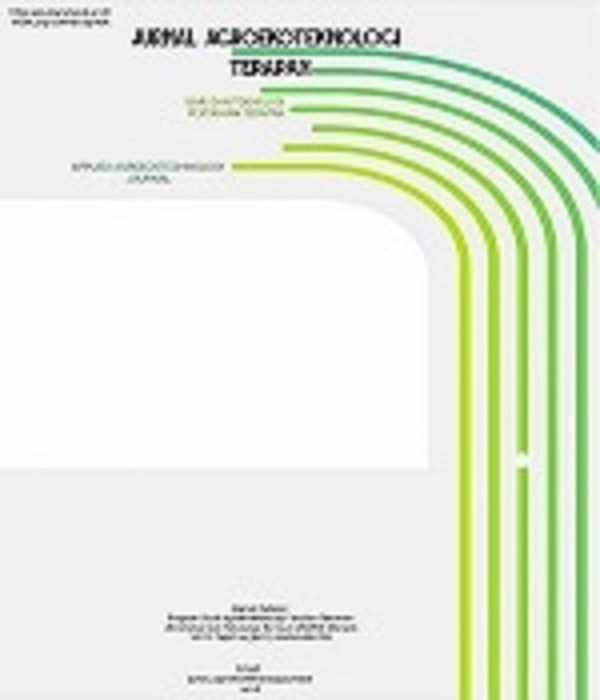The Effects of Substituting Straw Compost for NPK Fertilizer On Field Rice Growth and Yield Using The SRI (System of Rice Intensification) Method
DOI:
https://doi.org/10.35791/jat.v5i1.54192Abstract
With an agroecological philosophy, the SRI (System of Rice Intensification) technique is a rice production technology approach that prioritizes soil, plant, and water management through local expertise and group empowerment based on environmentally beneficial activities. The purpose of this study is to investigate lowland rice growth and yield by using composted straw instead of NPK fertilizer. Implemented in Tara-Tara II village, West Tomohon sub-district for 5 (five) months with one factor treatment, namely the ratio of NPK fertilizer dose and straw compost dose: 100% NPK + straw compost 0% straw compost (P0), 75% NPK + 25% straw compost (P1), 50% NPK + 50% straw compost (P2), 25% NPK + 75% straw compost (P3), and 0% NPK + 100% straw compost (P4). The variables observed included: plant height, number of fodder, number of panicles/clumps, weight of 100 harvested dry grains, number of grains/panicles, percentage of smooth grains/clumps and harvested dry grain yield. Substitution of NPK fertilizer with compost straw has no effect on the height of lowland rice plants using the SRI (System of Rice Intensification) method, but does affect the number of productive tillers. The highest number of productive tillers was found in P2 (50% NPK + 50% straw compost), P3 (25% NPK + 75% straw compost) and P4 (0% NPK + 100% straw compost), with an average value of 31, respectively. 27; 28.20 and 27.53 tillers, while treatment P3 (25% NPK + 75% straw compost) and lower values in treatments P0 (100% NPK + 0% straw compost) and P1 (75% NPK + 25% straw compost ) with an average value of 25.83; and 25.67 offspring.
Keywords: System of Rice Intensification (SRI), rice, straw compost.
Downloads
Published
How to Cite
Issue
Section
License
Copyright (c) 2024 Rantung Rantung , Jeanne M. Paulus, Paula C. H. Supit, Tommy B. Ogie, Edy F. Lengkong, Stanley A. F. Walingkas, Annatje E. B. Inkiriwang, Beatrix Doodoh, Ventje Pangemanan, Jemmy Najoan, Maria G. M. Polii, Stella Maria Theresia Tulung

This work is licensed under a Creative Commons Attribution-NonCommercial 4.0 International License.

This work is licensed under a Creative Commons Attribution-NonCommercial 4.0 International License.





















